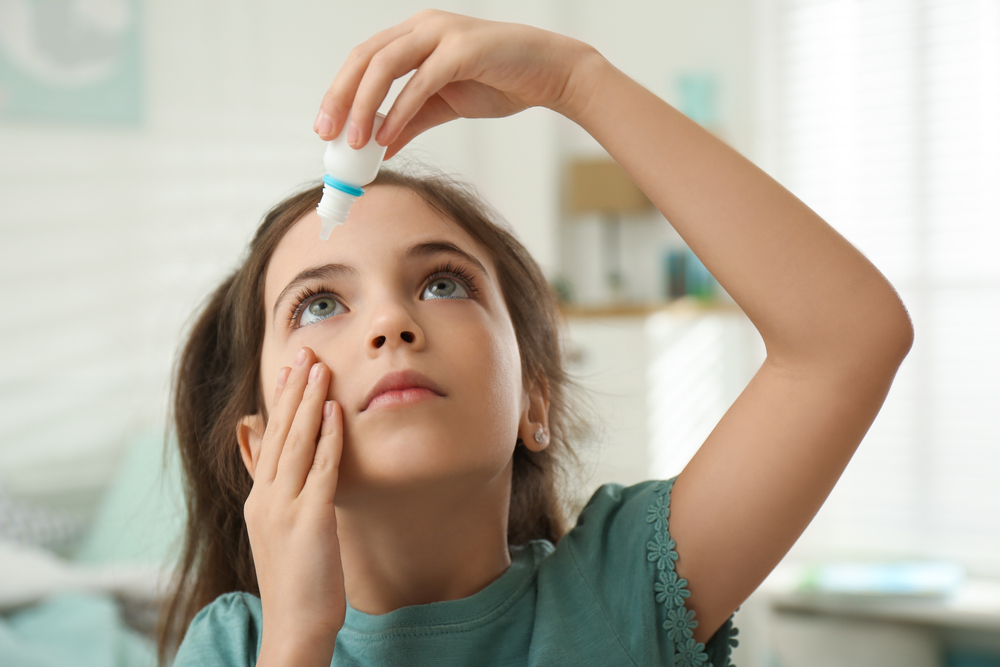Atropine Drops for Myopia Control: How They Work and Their Effectiveness
Blog:Atropine Drops for Myopia Control: How They Work and Their Effectiveness

Atropine Drops for Myopia Control: How They Work and Their Effectiveness
Myopia, commonly known as nearsightedness, is an increasingly prevalent condition affecting children and adults worldwide. As it progresses, myopia not only impacts vision but can also lead to more serious eye health complications later in life, such as retinal detachment, glaucoma, and macular degeneration. One of the most promising treatments for managing myopia progression is the use of atropine eye drops.
What Are Atropine Drops?
Atropine is a type of medication traditionally used to dilate pupils during eye exams or treat certain eye conditions. In low concentrations, atropine has been found to slow the progression of myopia in children, making it a groundbreaking treatment option for myopia control. The drops are typically administered once daily and are safe when prescribed and monitored by an eye care professional.
How Do Atropine Drops Work?
While the exact mechanism of action isn’t fully understood, atropine is believed to work by:
Slowing Eye Growth: Myopia occurs when the eyeball grows too long, causing light to focus in front of the retina rather than directly on it. Atropine slows this elongation process, reducing the progression of myopia.
Reducing Eye Strain: Some studies suggest atropine helps relax the focusing mechanism of the eye, preventing excessive strain that can contribute to myopia progression.
Regulating Eye Cell Activity: Atropine may influence the biochemical pathways in the eye that affect growth, thereby controlling myopia progression.
How Effective Are Atropine Drops?
Numerous clinical studies have demonstrated the effectiveness of atropine eye drops in slowing myopia progression, particularly in children. Here are some key findings:
Reduction in Myopia Progression: Atropine drops can reduce myopia progression by as much as 60–70% when used consistently.
Tailored Concentrations: Low-concentration atropine (e.g., 0.01%) is popular because it provides effective control with minimal side effects like light sensitivity or difficulty focusing on near objects.
Long-Term Benefits: Slowing myopia progression early in life can significantly reduce the risk of high myopia and its associated complications later in life.
Who Can Benefit from Atropine Drops?
Atropine drops are most commonly recommended for children whose myopia is rapidly progressing. Early intervention is critical in managing myopia, as the condition tends to worsen with age. Your eye doctor will assess your child’s vision, discuss their medical history, and determine if atropine is the right option.
Are Atropine Drops Safe?
Low-dose atropine drops are considered safe when used under the guidance of an eye care professional. Mild side effects may include light sensitivity or difficulty focusing on nearby objects, but these are typically manageable with sunglasses or reading glasses. Routine follow-ups are essential to monitor effectiveness and adjust treatment as needed.
Schedule Your Child’s Eye Exam at Texas State Optical Today
We’re committed to helping you and your family achieve and maintain optimal vision health. Our optometrists are proud to offer comprehensive myopia management services, including atropine drops, to slow the progression of nearsightedness.
To learn more about atropine for myopia control or other treatment options, contact Texas State Optical to schedule a consultation. Visit our office in Spring, Texas, or call (823) 239-5723 to book an appointment today.


